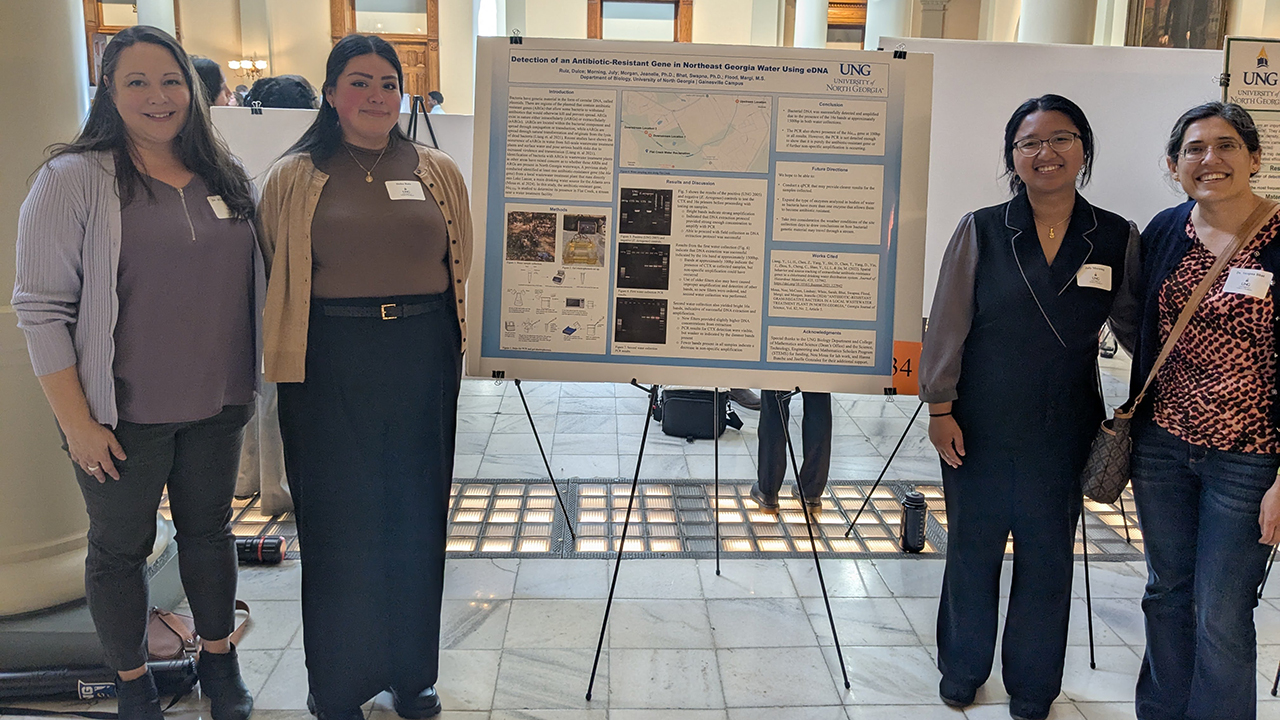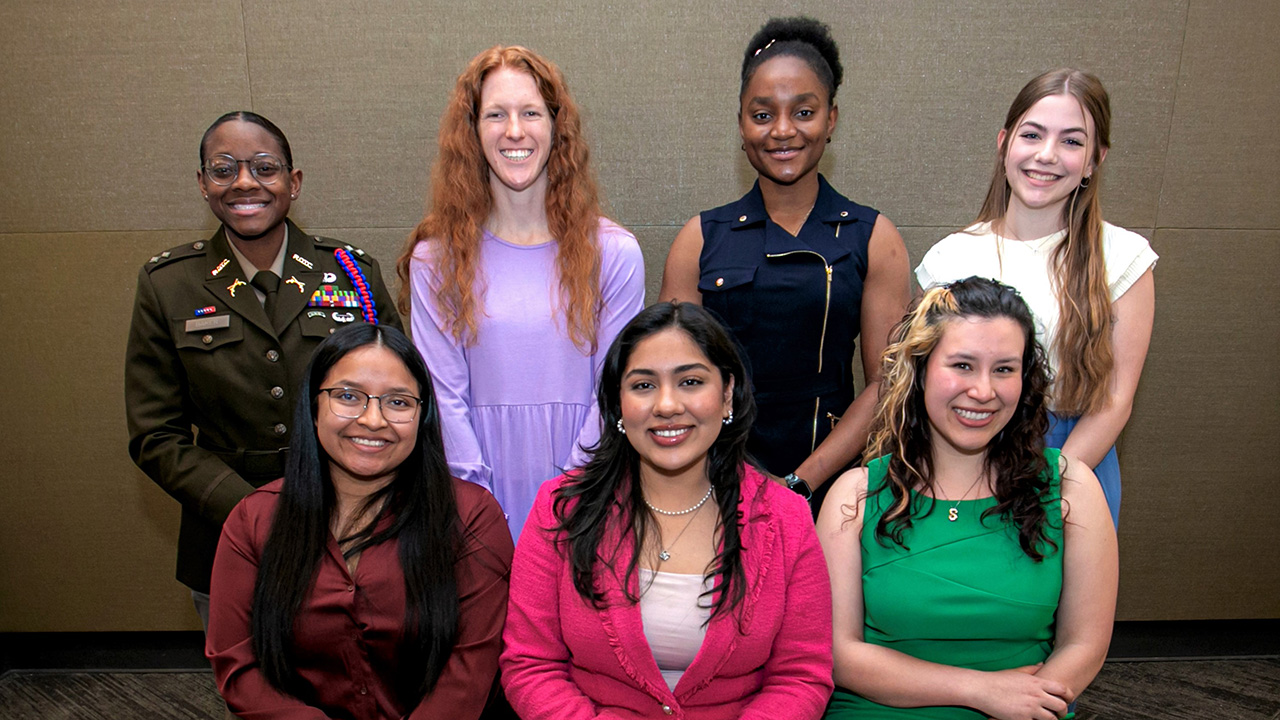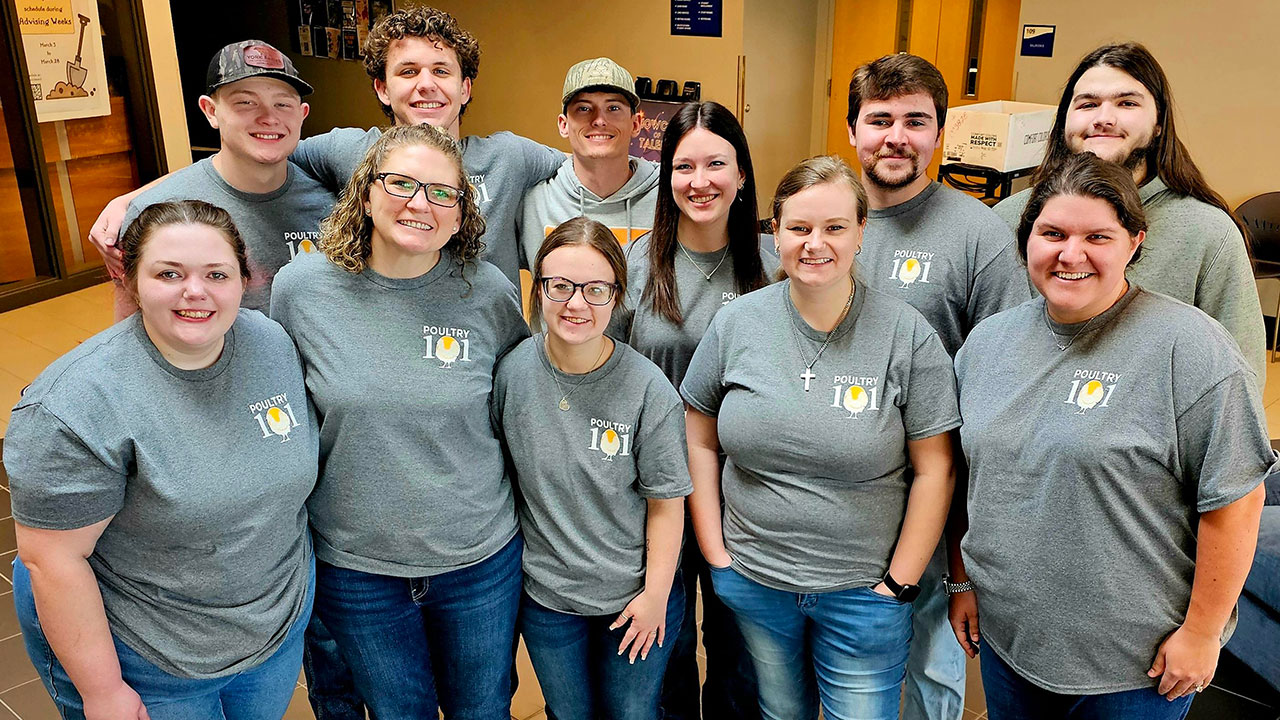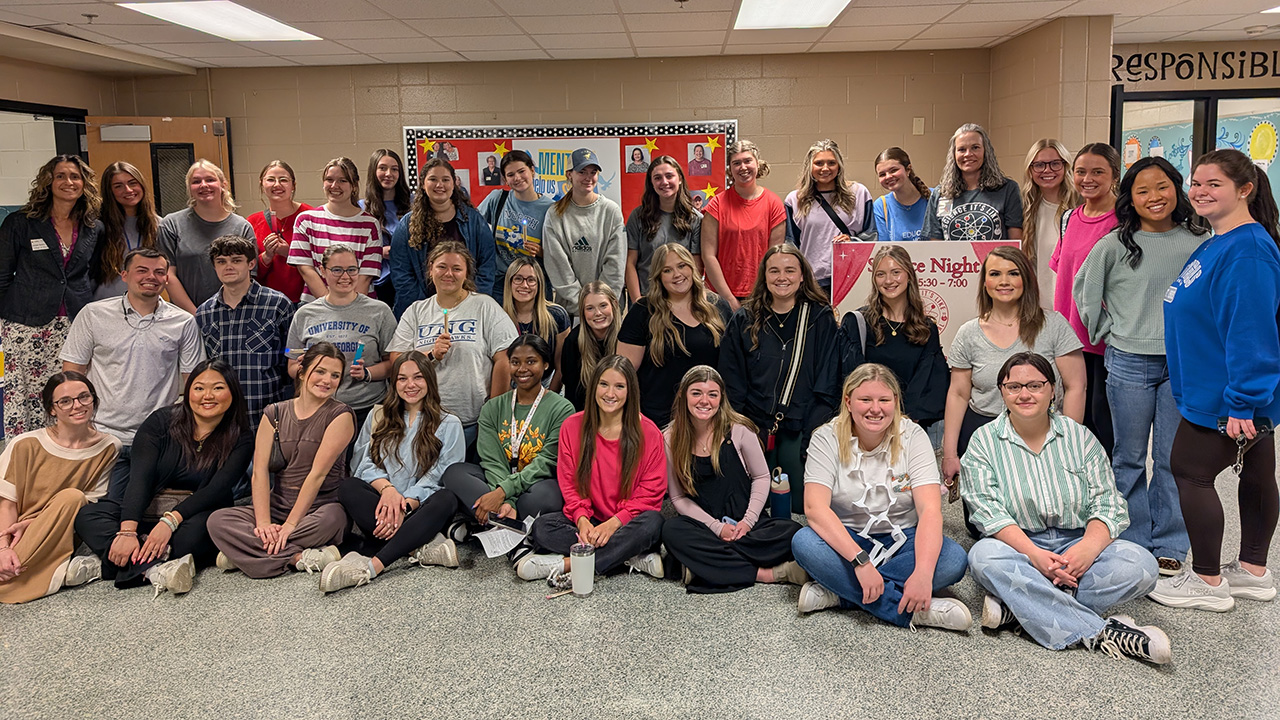UNG program boosts local elementary teachers' science knowledge

Article By: Staff
As a self-proclaimed "science geek," Lumpkin County school teacher Cathy McMullan enjoyed her latest assignment of digging up dirt and examining its attributes under a microscope.
In fact, McMullan and 30 other elementary school teachers participated in several hands-on scientific activities during the University of North Georgia's (UNG) Science Content Inquiries Training (SCI-Train) program.
Developed in 2014 as a collaboration between UNG's College of Education faculty members Dr. April Nelms and Dr. Sanghee Choi and College of Science and Mathematics faculty member Dr. Mark Spraker, the two-year program was designed to provide content development for kindergarten through fifth-grade teachers in Hall and Lumpkin counties, said Nelms, associate professor and department head of teacher education at UNG. The program was funded through a state Department of Education grant.
The first cohort of 33 teachers started in November 2014 and ended in June 2016. The second cohort of 31 teachers started in November 2016 and will end in June 2018.
All teachers attended 20 daylong sessions to learn a different way to "facilitate" science lessons, including physical science such as physics and chemistry; life sciences such as biology; and earth and space sciences such as geology and meteorology.
"We teach them a method that is different from the traditional way that science has been taught. It is the inquiry method," said Spraker, professor of physics at UNG.
He explained the program walked the teachers through the inquiry method's five steps of engage, explore, explain, extend, and evaluate. Then real-life examples were used to illustrate the method, starting with a "grabbing question."
"For example, I could say 'I was driving down the road this morning and I had to slam on my brakes because a deer ran in front of me. My books beside me fell on the floor and it spilled my coffee,'" Spraker said. "Then I would ask 'Why did that happen?'"
McMullan, a fifth-grade teacher at Longbranch Elementary School, said she was excited to use the new inquiry model in her classroom.
"I'm not putting a book in front of students and saying 'turn the page,'" she said. "We are doing more hands-on things and discovery versus strict experimentation. We are really starting with a question and discovering the answers."
Preparing teachers as science leaders is one of the main goals of SCI-Train, said Choi, associate professor of science education.
 |
|
More than 30 elementary school teachers participated in several hands-on scientific activities during the University of North Georgia's (UNG) Science Content Inquiries Training (SCI-Train) program. |
"Reflection on teaching is not good enough, but we want to see real changes in the classroom," she said. "Teachers who participated in this workshop became leaders in their schools, implementing science and engineering practices in their classrooms. Students became active inquirers who researched their own questions about what’s happening in their everyday lives. That is the whole point of being an educator."
Spraker described the program as an investment in our local community.
"If students have a wonderful science experience in elementary school, we don't lose them by the time they get to middle school or high school," he said. "They become interested in STEM (science, technology, engineering, and mathematics) careers."
Encouraging students in the STEM courses is important for the future.
"Right now we aren't producing enough people to drive the economy that is needed in technology," Spraker said. "So we need to help them appreciate science."
So far, the federally funded plan is working, Nelms said. The teachers were assessed at the beginning, evaluated during the program and assessed at the end.
"We observed them and saw the growth," she said. "We are seeing a statistically significant change."
McMullan said she has seen a change in her fifth-graders.
"The biggest change I've seen is their excitement for science," she said. "It is very dry when reading a book. When my students are able to do hands-on discovery, they are more excited by what happened. And we are doing experiments with a bigger impact. And hopefully I've made a whole class full of science geeks."



